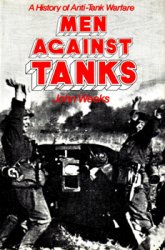The Korean War highlighted the paradox that, at the pinnacle of its power, the influence of the United States in world affairs was declining. Its monopoly on nuclear weapons had been lost. China had passed into the communist orbit. Elsewhere in Asia and throughout Africa, new nations, formerly colonial possessions of the Western powers, were adopting a “neutralist” position in the Cold War. Despite the billions poured into armaments and foreign aid, national security seemed far from ensured.
Internal as well as external dangers loomed. Alarming examples of communist espionage in Canada, Great Britain, and the United States convinced many citizens that clever conspirators were everywhere at work undermining American security. Both the Republicans and conservative Democratic critics of Truman’s domestic policies were charging that he was “soft” on communists.
There were never more than 100,000 communists in the United States, and party membership plummeted after the start of the Cold War. However, the possibility that a handful of spies could do enormous damage fueled a kind of panic that could be used for partisan purposes. In 1947, hoping to defuse the com-munists-in-government issue by being more zealous in pursuit of spies than his critics, Truman established a Loyalty Review Board to check up on government employees. The program made even sympathy for a long list of vaguely defined “totalitarian” or “subversive” organizations grounds for dismissal. During the following ten years about 2,700 government workers were discharged, only a relative handful of them for legitimate reasons. A much larger number resigned.
In 1948 Whittaker Chambers, an editor of Time who had formerly been a communist, charged that Alger Hiss, president of the Carnegie Endowment for International Peace and a former State Department official, had been a communist in the 1930s. Hiss denied the charge and sued Chambers for libel. Chambers then produced microfilms purporting to show that Hiss had copied classified documents for dispatch to Moscow. Hiss could not be indicted for espionage because of the statute of limitations; instead he was charged with perjury. In January 1950, he was convicted and sentenced to a five-year jail term.
If a distinguished official such as Hiss had been disloyal, anything seemed possible. The case fed the fears of those who believed in the existence of a powerful communist underground in the United States. The disclosure in February 1950 that a British scientist, Klaus Fuchs, had betrayed atomic secrets to the Soviets heightened these fears, as did the arrest and conviction of his American associate, Harry Gold, and two other Americans, Julius and Ethel Rosenberg, on the same charge.
Although they were not major spies and the information they revealed was not crucial, the
Rosenbergs were executed, to the consternation of many liberals in the United States and elsewhere. However, information gathered by other spies had speeded the Soviet development of nuclear weapons. This fact encouraged some Republicans to press the communists-in-government issue hard.




 World History
World History









